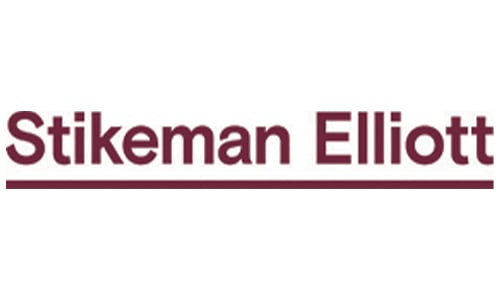This article was written by Kris R. Noonan, Alain Saint-Onge, and Jennifer McBean of Stikeman Elliott LLP.
The topic of COVID-19 vaccinations has long been a contentious one, and a new arbitration decision in Ontario has provided the latest example of how the Canadian legal system weighs the employer’s duty of care to its employees against the latter’s right to bodily integrity. In Power Workers’ Union v Elexicon Energy Inc.,[1] an Ontario arbitrator found that the employer’s compulsory vaccination policy mandating third “booster” shots was reasonable as it aligned with the employer’s duty to protect the health and safety of its workforce, and, as an essential service provider, was reasonably required to ensure it had enough employees to provide such services. This decision is important for two reasons:
- the rapid spread of the Omicron variant was a focal point of the decision, notwithstanding the policy was introduced (and grieved) nearly 2 months before it became the dominate strain in Ontario; and
- it is arbitral authority that supports mandatory “booster” shots where there is a significant operational risk to the availability of the workforce. The decision also emphasizes that an arbitrator’s assessment of what constitutes a “reasonable” mandatory vaccination policy during the COVID-19 pandemic must be contextual and dynamic.
This decision marks a continuation of earlier rulings that previously upheld compulsory vaccination policies, though the decisions handed down in future adjudications may be influenced by the state of the pandemic at the time that they are made.
Background
In response to the COVID-19 pandemic, Elexicon Energy Inc. (“Elexicon”), a municipally owned electricity distribution company in the province of Ontario, introduced a number of protective measures to reduce the transmission of COVID-19 at its workplace, including:
- masking;
- physical distancing;
- hygiene, cleaning and disinfection;
- testing; and
- work from home arrangements.
Notwithstanding the introduction of these measures, the risk of workplace COVID-19 transmission at Elexicon remained high, as its employees worked in close contact with each other for significant periods of time. Furthermore, the nature of its operations required its employees to intermingle between cohorts and members of the public.
As such, on October 28, 2021, Elexicon introduced a mandatory vaccination policy (the “Policy”) that required its employees to have “full vaccination status” by January 7, 2022. The Policy defined “full vaccination status” as two doses and any additional vaccinations recommended by governmental and/or healthcare authorities. During the rise of the Omicron variant and following the Ontario Government’s recommendation that all Ontarians aged 18 and over receive a “booster” shot, Elexicon relied on its Policy and made third shots compulsory. Employees who did not comply with the Policy would be restricted from entering Elexicon’s property and placed on an unpaid leave of absence. The Policy also prescribed that an employee could be subject to disciplinary action up to and including termination of employment.
The Power Workers Union (the “Union”) filed a grievance, alleging that the Policy was fundamentally undemocratic, unreasonable, and in violation of the employees’ right to preserve their bodily integrity.
Decision
The Arbitrator held that the Policy was enforceable and dismissed the Union’s grievance. The Arbitrator based his decision on two grounds. The first was in connection with Elexicon’s obligation under applicable occupational health and safety legislation to take every precaution reasonable in the circumstances to keep its workers safe. The evidence before the Arbitrator supported the position that vaccinated employees were at a lower risk of becoming infected or transmitting the virus to others, and that a third or “booster” dose further decreased the incidences of severe disease and transmission in the workplace.
The second ground was more specific to Elexicon’s business. The Arbitrator found that Elexicon provided a critical essential service, and that the protective measures established by the company, including compulsory vaccinations, were justified to enhance the availability of its workforce and the continuity of its essential service during the pandemic. The Arbitrator specifically noted that the absence of a vaccination mandate would lead to more frequent and longer absences and would amount to an unreasonable cost for Elexicon to bear.
While the Policy was upheld, it remained subject to several caveats, including:
- Working remotely. The Policy was not reasonable for employees who, pursuant to Elexicon’s direction, were required to work from home.
- Working outside. The Policy was not reasonable for those who worked entirely outside.
Significance of the Decision
The decision goes a step further than previous arbitral decisions by upholding a mandatory vaccination policy that required employees to receive a third “booster” shot against COVID-19. This decision’s reliance on the general and universal positive obligation on employers to take reasonable steps to protect its workers has a wide range of applicability to many workforces.
Read more about this arbitration decision and its significance to COVID-19 workplace vaccine mandates on the Stikeman Elliott website here.
[1] Power Workers’ Union v Elexicon Energy Inc., 2022 CanLII 7228 (ON LA).
***
 Kris Noonan is a partner in the Employment & Labour Group. His practice focuses on employment and labour law, privacy law and human rights. Kris is a management-side lawyer that represents a diverse group of employers in both union and non-union work environments.
Kris Noonan is a partner in the Employment & Labour Group. His practice focuses on employment and labour law, privacy law and human rights. Kris is a management-side lawyer that represents a diverse group of employers in both union and non-union work environments.
***
 Alain Saint-Onge is an associate in the Employment & Labour Group. His practice focuses in all areas of employment and labour law, privacy law and human rights.
Alain Saint-Onge is an associate in the Employment & Labour Group. His practice focuses in all areas of employment and labour law, privacy law and human rights.
***
 Jennifer McBean is an associate in the Employment & Labour Group. She provides advice to clients on employment contracts, policies, terminations, restrictive covenants, legislative compliance, and corporate due diligence.
Jennifer McBean is an associate in the Employment & Labour Group. She provides advice to clients on employment contracts, policies, terminations, restrictive covenants, legislative compliance, and corporate due diligence.





